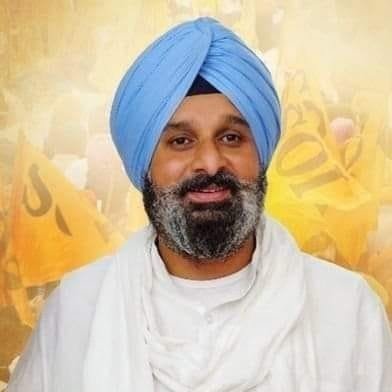Saptrishi Soni: Punjab’s political arena has shifted into a high-stakes battleground following the arrest of Shiromani Akali Dal (SAD) senior leader Bikram Singh Majithia by the Punjab Vigilance Bureau on June 25. Accused of owning assets grossly disproportionate to his declared income, Majithia now faces allegations of alleged links with drug traffickers and foreign money laundering—a story that has swiftly evolved into more than just another case. It is shaping into a referendum on the integrity of the state’s anti-drug campaign and the boundaries of political accountability.
According to the Vigilance Bureau, preliminary findings reveal that Majithia amassed nearly ₹540 crore through illicit channels tied to the drug cartel operating in Punjab. Investigators claim ₹161 crore was lodged as unaccounted cash deposits, ₹141 crore funneled through offshore entities, and ₹236 crore masked through corporate bookkeeping—often obscured under the guise of Saraya Industries Limited, a family-prioritized enterprise . Raids spanning 25 locations in Punjab, including nine in Amritsar, recovered entire arsenals of digital evidence—laptops, phones, financial records—said to form the backbone of the case . As Majithia was presented before the Mohali court, arguments on both sides launched a political tug-of-war.
The Aam Aadmi Party-led state government has defended its campaign, with Chief Minister Bhagwant Mann stating this action reflects a larger war against the narcotics trade. Mann asserted that evidence—hawala transaction logs, company records, and digital data—demonstrates deep collusion between mainstream political figures and drug mafias, with Majithia emerging as a prime beneficiary . He also warned that this is just the beginning, hinting at further seizures and seizures or demolition of properties stained by drug money.
Yet the Akali Dal has fiercely countered these allegations, claiming that the assets under scrutiny are ancestral and have long predated Majithia’s political journey. Senior SAD spokesperson Maheshinder Singh Grewal emphasized that no preliminary inquiry was conducted prior to the case’s registration, and that many properties date back generations—some even to Majithia’s grandfather who owned Rolls-Royces and planes in the 1950s . They have likened the actions by the Vigilance Bureau to state-sponsored political persecution, aiming to dismantle opposition ahead of the next elections.
Adding heft to the case, former Punjab DGP Sidharth Chattopadhyaya recently handed a dossier of evidence to the Vigilance Bureau, alleging that Majithia had colluded with drug smugglers since 2012. He went so far as to allege evidence suppression under prior governments, while also identifying state officials accused of amassing illicit wealth under legal cover . Meanwhile, retired ED Deputy Director Niranjan Singh—who earlier probed Punjab’s ₹6,000 crore Bhola drug-money laundering ring—also provided statements to the same bureau. Singh claimed witnesses had previously named Majithia, and that his enquiry was actively obstructed by past administrations .
Majithia, for his part, stood firm against the narrative. He reportedly warned state agencies against perceived transgressions during the raid, asserting that this disproportionate assets case mirrors earlier drug-related charges that failed in court. Rather than dismantling the claims, his legal team has lodged a vigorous defense and secured seven-day police remand to challenge the charges.
Outside politics, the dispute raises broader implications for Punjab’s faltering “Yudh Nashean De Virudh” anti-drug mission. Critics argue that when powerful figures are implicated, the system fractures into mistrust, hampering convictions and emboldening traffickers. A decisive blow against a prominent opposition leader may reassure some supporters, but for others, it revives fears of overreach and misuse of investigative bodies.
As the legal battle unfolds, observers note the case may pivot on forensic audit trails: hawala routes, foreign investments, and high-value property transfers. If proven, the case will signal a strong lease of legitimacy to Punjab’s resolve against drug-related corruption. If not, it risks ratcheting up political polarization and eroding public trust.
In the coming weeks, case scrutiny will hinge on court examinations, police remand extensions, and SIT activity across property sites—including a strategic spot near Mashobra, Himachal Pradesh . With key hearings anticipated before the Punjab and Haryana High Court, and political momentum surging on both sides, the Majithia trial has become more than a legal proceeding—it is the defining battleground of Punjab’s governance and party warfare.
At this intersection of justice and politics, only time will tell if this case represents the revelation of unmasked corruption or the fragmentation of democratic norms. Punjab’s citizens watch closely, aware that the outcome may not just determine Majithia’s political future—but could redefine institutional trust across the state.
This is an auto web-generated news web story
